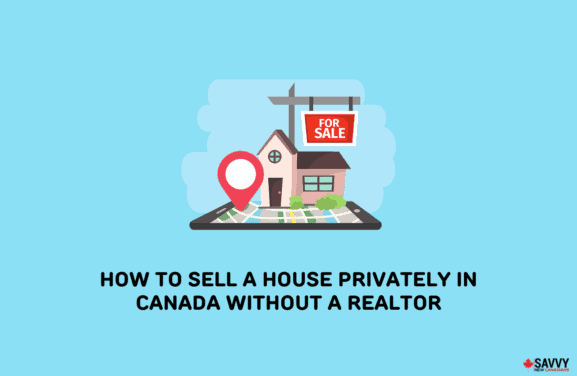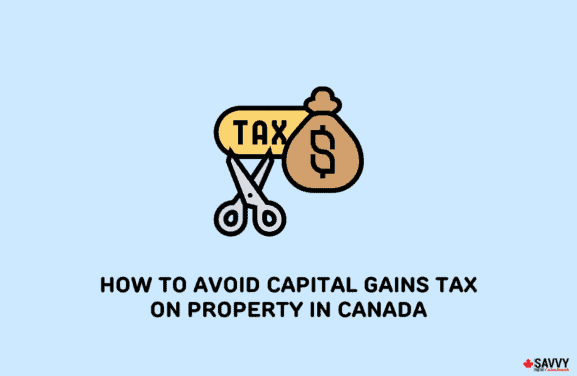Property taxes are taxes that property owners pay to the municipality or city. The payments are typically based on the assessed value of the property and the property tax rate set by the municipality.
In 2023, Winnipeg, Manitoba, had the highest property taxes in all of Canada, while Vancouver, British Columbia, had the lowest rate.
In this article, we’ll discuss property taxes in Canada, how they work, the various types of taxes you pay as a Canadian homeowner, and the property taxes by province.
How Property Tax Works in Canada
In Canada, property taxes are calculated by multiplying the assessed value of a property by the tax rate set by your municipality. Some provinces and cities add other costs to the rate you pay.
While the factors used to calculate property taxes may differ between provinces, it typically has two components:
- Municipal tax rate. This is set by the municipal government and used to fund local services and infrastructure.
- The education tax rate. Set by the provincial government, this is used to fund the public education system.
The property tax rate is set annually and determined by the municipality or government agency with authority in property taxation. A municipality can set various tax rates for different property types, including residential, multi-residential, commercial, and industrial property.
Every municipality across Canada establishes its own annual property tax rate. Although municipalities have different methods of calculating property taxes, the basic formula used across Canada, as mentioned above, is:
Property Tax = Assessment Value x Municipal Tax Rate
When determining its property tax rate, a municipality considers various factors and data points. These are often aligned with the municipality’s budget and goals. Generally, the more services it provides or the more needs it has, the higher its tax rate to meet the demands.
Local governments collect property taxes from residential, commercial and industrial property owners. A homeowner’s property tax bill may likewise include other fees, such as education taxes or city services.
Property taxes are normally paid annually, with each municipality having its own set of guidelines for payment. Homeowners can pay their property taxes annually, semi-annually, or monthly, depending on the options their municipality offers.
What Property Taxes Pay For
Municipalities and local governments collect property taxes to fund a broad range of services and infrastructure. The most common areas that property taxes pay for in Canada are as follows:
- Local government services. These include police and fire protection, public transit, waste management and recycling, emergency services, libraries and communication centres, road maintenance, street lighting, and parks and recreation facilities.
- Education. Most provinces allot a portion of property taxes to fund their local public education system, including elementary and secondary schools.
- Social services. Many municipalities also use property taxes to support their social initiatives and services, including affordable housing programs, youth and senior services, community care, and homelessness prevention programs.
- Community Planning and Development. This covers building inspections and permits, zoning regulations, economic development programs, and environmental protection.
These Are the Taxes You Pay As a Homeowner
If you’re a homeowner in Canada, you may be subject to various types of taxes apart from property taxes. These include the following:
- Goods and Services Tax (GST) or Harmonized Sales Tax (HST). Buying a home or building a new one in Canada requires paying the federal GST. You also need to pay HST if you reside in a province that requires it.
- Capital Gains Tax. This applies to the profit you earn when you sell your assets, such as your property, for more than what you initially paid for them.
- Land Transfer Tax. When you purchase land, your province may impose a land transfer tax. The amount varies by province and depends on the purchase price of the property.
- Provincial and Municipal Fees. Homeowners are typically subject to property ownership-related fees, such as waste disposal and utility fees.
Average Property Tax in Canada
In 2023, residential property tax rates varied widely across Canada, with rates ranging from 0.28% to over 2.6%, depending on the province.
Highest Property Tax in Canada
Winnipeg, Manitoba, has the highest residential property tax rate in Canada, at 2.6439%. Given that the average home price in Winnipeg is $344,600, the tax rate translates to a yearly payment of approximately $9,111.
The region’s high property taxes are due in part to inflationary pressure. However, the housing prices in Winnipeg are remarkably lower than in other cities and provinces.
The share of property taxes in Manitoba for each property owner is determined by their assessment, property class, and the portion of the assessment that is taxed. The total amount of taxes to be collected is established by the municipal and school board budgets.
The property tax in Winnipeg is based on the assessed value of a property, which is appraised by the district assessment office every two years. The taxes are used to pay for services, including police, fire department, public transit, and elementary and secondary education.
Lowest Property Tax in Canada
Vancouver, British Columbia, has the lowest property tax in Canada at 0.27807%. The average price of a home in Vancouver is $1,188,000. With a property tax rate of 0.27807%, a homeowner living in this city would have to pay $3,303 annually.
The reason for the relatively low property taxes in Vancouver is that the home values in the region have significantly increased over the years. To compensate for this increase, property taxes have been lowered.
In calculating the property taxes in Vancouver, the main factors used are the property’s assessed value and the annual tax rate set by the city council. The BC Assessment Authority performs the assessment every year.
The city’s tax rate is divided into various classes. Residential properties are categorized as Class 1. The majority of the property taxes go towards municipal taxes, which fund public services such as police, fire fighting, emergency rescue, libraries, parks, recreation centres, and more.
Property Taxes By Province
Below are the 2023 residential property tax rates (rounded to the nearest hundredth) by select provinces and cities.
| City/Province | 2023 Property Tax Rate |
| Vancouver, British Columbia | 0.28% |
| Abbotsford, British Columbia | 0.37% |
| Victoria, British Columbia | 0.44% |
| Montreal, Quebec | 0.53% |
| Calgary, Alberta | 0.66% |
| Toronto, Ontario | 0.67% |
| St. John’s, Newfoundland & Labrador | 0.83% |
| Edmonton, Alberta | 0.94% |
| London, Ontario | 1.10% |
| Halifax, Nova Scotia | 1.15% |
| Ottawa, Ontario | 1.17% |
| Guelph, Ontario | 1.23% |
| Saskatoon, Saskatchewan | 1.29% |
| Regina, Saskatchewan | 1.56% |
| Saint John, New Brunswick | 1.62% |
| Charlottetown, Prince Edward Island | 1.67% |
| Winnipeg, Manitoba | 2.64% |
Source: Zoocasa
Related:



